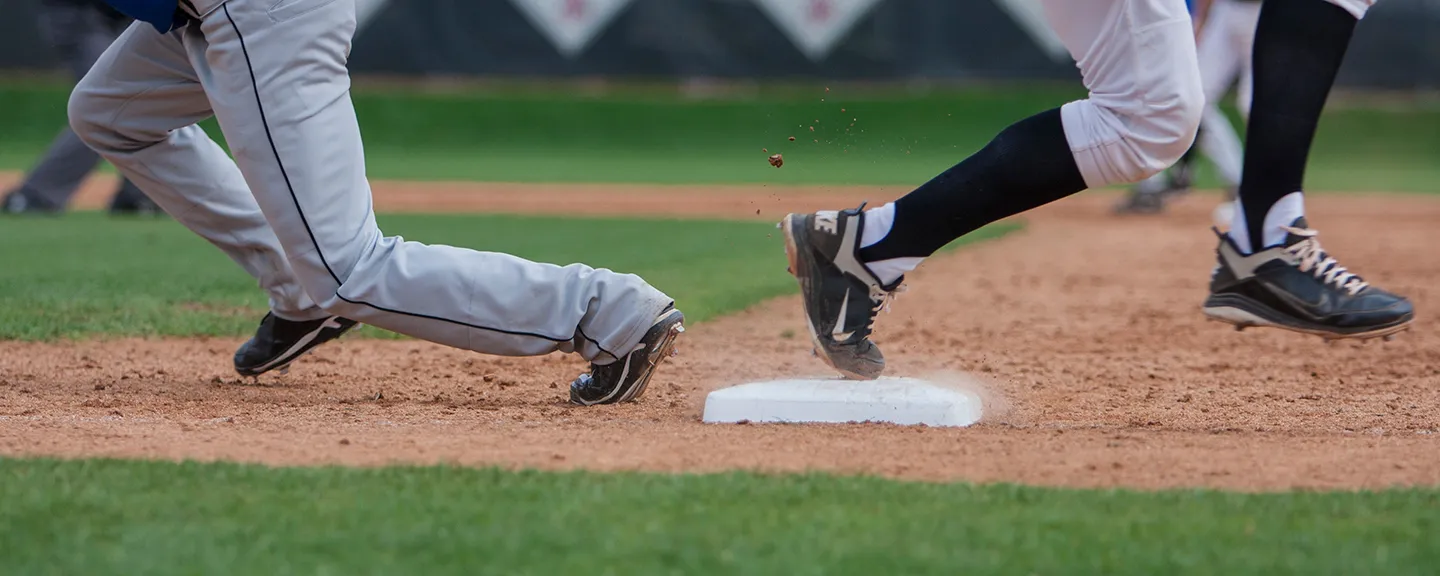- Home
- >
- APU Articles
- >
- News Article
The Future of Sports: How Research at APU Impacts Athletes
December 15, 2020 | Written By Ben Kissam

Kinesiologists, researchers in physical education, and professionals on the front line—such as athletic trainers—collaborate to determine what’s best for athletes. The future of this science is being discovered and developed in real-time at colleges around the world.
In fact, Azusa Pacific University has been leading research efforts related to the sports world, helping to identify and promote safer, more effective athletic protocols. If you’re an athlete or are interested in pursuing a career in athletics, here’s what you need to know about the importance of research in the future of sports—and how to get involved.
Why Research in Sports Is Important
“Research is imperative to enable the development of health and safety legislation, educational policies, and best practices that ensure student-athlete health and safety,” said April Hoy ’95, assistant athletics director at APU.
The sheer number of sport participants across the world may help illustrate what’s at stake. The United Nations estimated that the global sports industry generates more than $756 billion annually. NCAA sports in America alone account for approximately $1 billion of that figure, according to Business Insider.
Research allows us to collect data and draw conclusions on important topics like:
- Safety and injury prevention
- Sports performance and recovery
- Technological trends
- Sport analytics
It also helps establish science-backed standards that educate and protect those who work in the industry—coaches, trainers, sport psychologists, and athletic trainers.
“Without research, we are merely guessing as we develop sport legislation, education, and best practices,” Hoy noted. “And that does little to provide a sports environment of student-athlete health and safety.”
APU Research: Concussion in Sports
Home to 17 Division II sports programs and a number of sport-related undergraduate and graduate programs, APU has a deep connection and love for conducting athletic research. This, in large part, is thanks to Hoy, who goes to great lengths to ensure APU isn’t standing still.
A great example is the school’s involvement with the Concussion Assessment, Research, and Education (CARE) Consortium. Spearheaded by Hoy, APU’s participation is considered one of the project’s bright spots.
“April and her team have been an incredible part of the CARE Consortium,” said Steve Broglio, Ph.D., co-chair of the Consortium Operating Committee. “[APU has] consistently produced some of the highest enrollment and data quality numbers across all sites. They are the site we use as the example for best practices.”
Considering larger Division I institutions like the University of Michigan, the University of Oklahoma, the University of Florida, and the University of California, Los Angeles are also involved, this is high praise. And APU’s involvement is making a difference for athletes and students alike.
“Student-athletes have been educated and treated with the best practices of concussion management,” said Hoy. “Athletic training, kinesiology, and physical therapy students have assisted us in this concussion management and have [also] been able to learn from these best practices.”
Athletic Training and the Future of Sports
In her 21 years of serving APU athletics, Hoy has established herself as a premier athletic trainer and a national leader in the growth and development of the industry in colleges and universities. “Athletic trainers are at the forefront of research, policy development, education, practices, and medical coordination and are essential healthcare providers for the health and safety of student-athletes,” she said.
Hoy is a former APU athlete herself, and one of her goals in conducting research is to specifically help advance the field of athletic training.
“I believe our participation in [the CARE Consortium] helps to validate the value of athletic training as an essential medical profession for sports,” Hoy said. “Hopefully this drives home the point we do much more than tape ankles and hydrate student-athletes.”
Curious to learn more about how Azusa Pacific University is ushering in a new era of sports research? Explore the Department of Kinesiology to review the undergraduate and graduate programs offered.